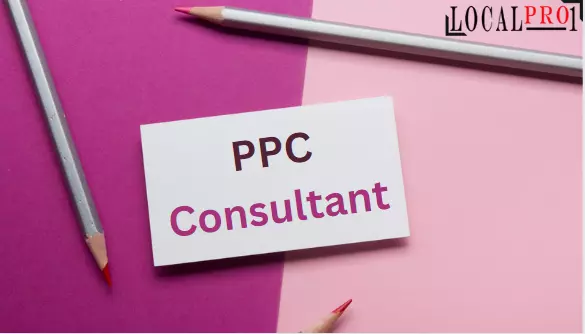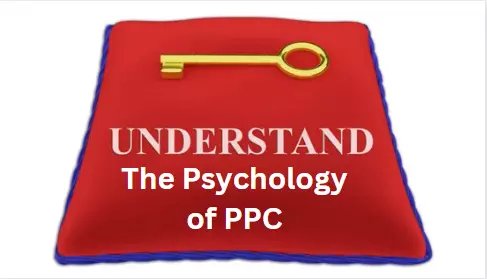Pay-per-click (PPC) advertising has emerged as a powerful tool for businesses to enhance their digital presence and drive targeted traffic to their websites. A PPC Consultant plays a pivotal role in optimizing and managing these campaigns to ensure maximum effectiveness. In this introduction, we will delve into the definition of a PPC Consultant and explore the significance of PPC in the realm of online marketing.

What is a PPC Consultant?
Definition and Role:
A PPC (Pay-Per-Click) Consultant is a professional who specializes in managing and optimizing online advertising campaigns, particularly those using PPC advertising models. PPC is a digital marketing strategy where advertisers pay a fee each time their ad is clicked. Common PPC platforms include Google Ads, Bing Ads, and social media advertising platforms like Facebook and LinkedIn.
Qualifications and Skills for a PPC Consultant:
Digital Marketing Knowledge: A strong understanding of digital marketing principles and strategies is essential. This includes knowledge of SEO, content marketing, and overall online marketing trends.
Analytical Skills: PPC Consultants must be proficient in data analysis. They use various tools to analyze campaign performance, identify trends, and make data-driven decisions to optimize campaigns.
Ad Platform Expertise: In-depth knowledge of PPC platforms such as Google Ads, Bing Ads, and social media advertising platforms. This includes staying updated on changes to algorithms, features, and best practices.
Keyword Research: Proficiency in keyword research to identify relevant and high-performing keywords for ad campaigns. This involves understanding the target audience and competitive landscape.
Copywriting Skills: Ability to create compelling ad copy that attracts clicks and conversions. Effective communication through concise and persuasive writing is crucial.
Budget Management: Skill in managing advertising budgets efficiently to maximize return on investment (ROI). This includes setting budgets, bidding strategies, and allocating funds to different campaigns.
Conversion Tracking: Knowledge of setting up and analyzing conversion tracking to measure the success of ad campaigns in terms of desired actions (e.g., purchases, and sign-ups).
A/B Testing: Experience in conducting A/B tests to optimize ad elements such as headlines, ad copy, and visuals for better performance.
Importance for Businesses:
Cost-Effective Advertising: PPC Consultants help businesses reach their target audience with precision, ensuring that ad spending is directed toward the most relevant and potentially profitable audiences.
Immediate Results: PPC advertising can generate quick results compared to some other digital marketing strategies. A PPC Consultant can optimize campaigns to achieve immediate visibility and results.
Targeted Advertising: Through keyword targeting and audience segmentation, PPC Consultants can ensure that ads are shown to specific demographics, locations, and interests, maximizing the relevance of the advertisements.
Data-Driven Decision-Making: PPC Consultants rely on data analysis to continually refine and optimize campaigns. This data-driven approach leads to better performance over time.
Competitive Advantage: In highly competitive industries, having a skilled PPC Consultant can give businesses a competitive edge by ensuring their ads are more effective and efficient than those of competitors.
How to Get Started With a PPC Consultant

Assessing Business Goals:
Define Your Objectives: Clearly outline your business goals and what you aim to achieve with PPC advertising. Whether it’s increasing website traffic, generating leads, or boosting sales, having well-defined objectives is crucial.
Understand Your Target Audience: Identify your target audience and the key demographics you want to reach through PPC competitor Analysis. Knowing your audience helps in creating targeted and effective advertising strategies.
Budget Allocation: Determine your budget for PPC advertising. This will influence the scale and scope of your campaigns. Understand how much you are willing to invest and what ROI (Return on Investment) you expect.
Finding the Right PPC Consultant:
Research and Shortlist: Look for PPC consultants or agencies with a proven track record of success. Research their client reviews, case studies, and industry reputation. Shortlist candidates that align with your business goals.
Check Credentials: Verify the consultant’s certifications and experience. Google Ads certifications, for example, are a good indicator of their expertise. Ensure they have experience in your industry or a similar niche.
Ask for References: Request references from past clients to get insights into the consultant’s performance, communication, and results. A reputable PPC consultant should be willing to provide references. Local Pro1 provides the best service related to PPC Consultants.
Initial Consultation Process:
Introduction and Background: Schedule an initial consultation to introduce your business and discuss your goals. Provide a comprehensive background on your products, services, and current marketing strategies.
Assessment of Current PPC Activities: If you have existing PPC campaigns, the consultant should assess their performance. Identify strengths, weaknesses, and areas for improvement.
Discuss Strategies: The consultant should present initial thoughts on potential strategies based on your goals. This may include keyword targeting, ad copy recommendations, and campaign structure.
Establishing Objectives and Expectations:
Set Clear Objectives: Collaboratively establish specific and measurable objectives for the PPC campaigns. Align these with your overall business goals to ensure a cohesive strategy.
Define Key Performance Indicators (KPIs): Determine the key metrics that will be used to measure success. Whether it’s click-through rates, conversion rates, or ROI, having clear KPIs will help track progress.
Agree on Reporting and Communication: Establish a communication plan and reporting schedule. Determine how often you will receive updates on campaign performance and what data will be included in these reports.
Understanding the Psychology of PPC

Understanding the psychology of PPC (Pay-Per-Click) advertising involves delving into the ways in which users think, behave, and make decisions online. PPC is a digital marketing model where advertisers pay a fee each time their ad is clicked. To effectively leverage PPC, it’s crucial to consider psychological principles that influence user behavior. Here are key aspects to understand:
Attention and Perception:
- Users have limited attention spans, and online environments are often cluttered with information. Design compelling ad creatives that grab attention quickly.
- Utilize eye-catching visuals, clear headlines, and concise ad copy to make an immediate impact.
Relevance and Context:
- Ensure that your ads are relevant to the user’s search intent. Align keywords, ad copy, and landing page content to create a seamless and coherent experience.
- Consider the context of where your ads appear. Tailor your message based on the platform, device, and user demographics.
Emotional Triggers:
- Emotional appeal plays a significant role in decision-making. Craft ad copy that triggers positive emotions or addresses pain points.
- Incorporate elements that resonate with your target audience, such as testimonials, success stories, or relatable scenarios.
Trust and Credibility:
- Build trust through transparent communication. Clearly communicate your value proposition and include trust signals, like customer reviews or industry certifications.
- Use ad extensions to provide additional information and enhance credibility.
Urgency and Scarcity:
- Create a sense of urgency to prompt immediate action. Use phrases like “limited-time offer” or “while supplies last” to encourage click-throughs.
- Display countdowns or promotional timers to emphasize time-sensitive deals.
User Experience (UX):
- A positive user experience is crucial. Optimize landing pages for speed, relevance, and easy navigation.
- Ensure that the information promised in the ad is readily available on the landing page to prevent user frustration.
Testing and Optimization:
- Continuously test different ad variations to understand what resonates best with your audience.
- Analyze performance data to make informed decisions and optimize campaigns based on user behavior.
Segmentation and Targeting:
- Segment your audience based on demographics, interests, or behavior. Tailor ads to specific segments for a more personalized approach.
- Use remarketing to re-engage users who have previously interacted with your website but didn’t convert.
Benefits of a PPC Consultant
Increased ROI (Return on Investment): A PPC consultant is skilled in optimizing campaigns to maximize returns. By analyzing data, refining strategies, and adjusting bids, they can help ensure that every dollar spent generates a higher return on investment.
Cost-Effective Advertising: PPC consultants are adept at managing budgets efficiently. They can help businesses minimize unnecessary spending while still achieving optimal exposure and results. This cost-effectiveness is crucial for businesses with limited advertising budgets.
Targeted Audience Reach: PPC consultants have expertise in identifying and targeting specific audiences. Through keyword selection, demographics, and other targeting options, they can ensure that your ads reach the most relevant audience, increasing the likelihood of conversions.
Real-time Performance Tracking: PPC consultants utilize advanced analytics tools to monitor campaign performance in real-time. This allows for immediate adjustments and optimizations based on data insights, ensuring that the advertising strategy stays aligned with business goals.
Expertise in Ad Platforms: PPC consultants are well-versed in various advertising platforms like Google Ads, Bing Ads, and social media platforms. Their expertise ensures that your campaigns are set up correctly, taking advantage of all available features to achieve optimal results.
Time and Resource Efficiency: Managing PPC campaigns can be time-consuming. By hiring a PPC consultant, businesses can save valuable time and resources. This allows them to focus on other aspects of their operations while knowing that their online advertising is in capable hands.
Conclusion
PPC consultant plays a pivotal role in navigating the complexities of paid advertising, and their impact extends beyond individual campaigns. Their strategic insights, data-driven approach, and continuous optimization contribute significantly to the overall success of businesses in the digital landscape. As businesses evolve and competition intensifies, the role of PPC consultants remains indispensable for staying ahead in the dynamic world of online marketing. Feel free to contact us for any type of query or service related to the PPC Consultants.
FAQs
What Is A Ppc Consultant?
A PPC (Pay-Per-Click) Consultant is a professional specializing in the strategic management and optimization of pay-per-click advertising campaigns. They help businesses maximize their online presence and generate targeted traffic through platforms like Google Ads, Bing Ads, and social media.
Why Should I Hire A Ppc Consultant For My Business?
Hiring a PPC Consultant can significantly benefit your business by leveraging their expertise to create and manage effective advertising campaigns. They can optimize your ad spend, increase conversion rates, and ensure a higher return on investment (ROI) compared to managing campaigns independently.
How Can A Ppc Consultant Help Improve My Online Advertising Performance?
A PPC Consultant employs various strategies such as keyword research, ad copy optimization, bid management, and continuous analysis to enhance the performance of your advertising campaigns. They focus on driving quality traffic and achieving your specific business goals, whether it’s lead generation, sales, or brand awareness.
What Platforms Do Ppc Consultants Typically Work With?
PPC Consultants are proficient in managing campaigns on popular advertising platforms such as Google Ads, Bing Ads, Facebook Ads, LinkedIn Ads, and other relevant channels. They tailor their approach based on the target audience and business objectives.
How Does A Ppc Consultant Determine The Budget For Advertising Campaigns?
PPC Consultants analyze various factors, including industry competition, target audience, and business goals, to establish an appropriate advertising budget. They aim to strike a balance between maximizing exposure and ensuring a cost-effective approach to meet your objectives.
